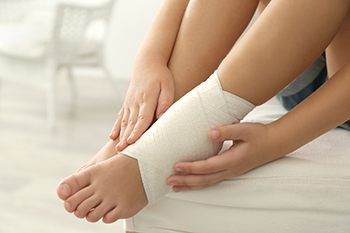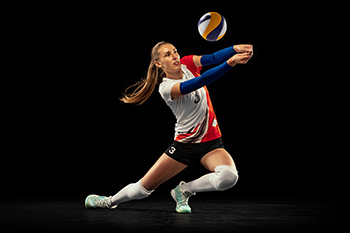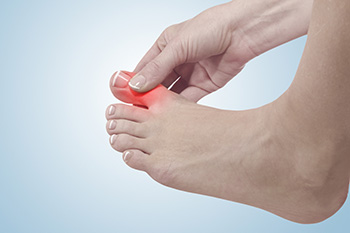
(616) 846-3400
Fax: (616) 846-3406

(616) 846-3400
Fax: (616) 846-3406

High heels have a fascinating history, originating in the 16th century when Persian cavalrymen wore them to secure their feet in stirrups. By the 17th century, high heels became a symbol of aristocracy in Europe, with both men and women sporting them. Today, high heels are primarily a fashion statement, but they drastically alter how we walk. Wearing high heels shifts your weight forward, changing your natural gait and forcing you to walk with a more rigid posture. This altered gait can strain the feet, knees, and lower back, leading to discomfort and potential long-term issues. Understanding this shift in movement helps to appreciate the balance between style and foot health, encouraging more mindful choices in footwear. Wearing high heels may cause foot conditions to develop. If this has happened to you, it is suggested that you consult a podiatrist who can guide you toward a treatment plan.
If you have any concerns about your feet, contact Dr. Robbi Young from Grand Haven Foot & Ankle. Our doctor can provide the care you need to keep you pain-free and on your feet.
Biomechanics in Podiatry
Podiatric biomechanics is a particular sector of specialty podiatry with licensed practitioners who are trained to diagnose and treat conditions affecting the foot, ankle and lower leg. Biomechanics deals with the forces that act against the body, causing an interference with the biological structures. It focuses on the movement of the ankle, the foot and the forces that interact with them.
A History of Biomechanics
Modern technological improvements are based on past theories and therapeutic processes that provide a better understanding of podiatric concepts for biomechanics. Computers can provide accurate information about the forces and patterns of the feet and lower legs.
Understanding biomechanics of the feet can help improve and eliminate pain, stopping further stress to the foot.
If you have any questions please feel free to contact our office located in Grand Haven, MI . We offer the newest diagnostic and treatment technologies for all your foot and ankle needs.

A high ankle sprain is an injury to the syndesmotic ligament complex that stabilizes the tibia, or shin bone, and fibula. This type of sprain occurs when the ankle is forcefully twisted outward or when the leg rotates inward while the foot is fixed. Unlike common ankle sprains, high ankle sprains often heal more slowly due to the involvement of these critical ligaments. Early symptoms include pain above the ankle, swelling, and difficulty bearing weight. Risks for high ankle sprains include sports activities, especially those involving sudden changes in direction or impact. Complications from untreated high ankle sprains can lead to chronic instability and susceptibility to future injuries. Diagnosis typically involves a physical examination and imaging tests like X-rays or MRI scans to assess the severity of the injury. Treatment varies depending on the injury's extent. If you are experiencing ankle pain, it is suggested you schedule an appointment with a podiatrist for proper diagnosis and care.
Although ankle sprains are common, they aren’t always minor injuries. If you need your ankle injury looked at, contact Dr. Robbi Young from Grand Haven Foot & Ankle. Our doctor can provide the care you need to keep you pain-free and on your feet.
How Does an Ankle Sprain Occur?
Ankle sprains are the result of a tear in the ligaments within the ankle. These injuries may happen when you make a rapid shifting movement while your foot is planted. A less common way to sprain your ankle is when your ankle rolls inward while your foot turns outward.
What Are the Symptoms?
Preventing a Sprain
Treatment of a Sprain
In many cases, the RICE method (Rest, Ice, Compression, and Elevate) is used to treat ankle sprains. However, you should see a podiatrist to see which treatment option would work best with your injury. In severe cases, surgery may be required.
It is important to ask your doctor about rehab options after you receive treatment for your injury. Stretching, strength training, and balance exercises may help the ankle heal while also preventing further injury.
If you have any questions, please feel free to contact our office located in Grand Haven, MI . We offer the newest diagnostic and treatment technologies for all your foot care needs.

Volleyball players are prone to ankle injuries due to the dynamic nature of the game. To reduce the risk, proper warm-up routines are essential, focusing on flexibility and strength exercises specifically for the lower legs. Wearing supportive footwear designed for volleyball can also help to stabilize the ankle and absorb shock. Additionally, practicing correct techniques for jumping and landing minimizes strain on the ankles. It is also important to strengthen the muscles surrounding the ankle through targeted strength training exercises. Incorporating balance and agility drills into regular training can improve coordination and reduce the likelihood of injury. Ankle injuries are typically painful, and can force a volleyball player to refrain from playing. If you have sustained an ankle injury while playing volleyball, it is suggested that you promptly visit a podiatrist who can offer effective treatment solutions.
Sports related foot and ankle injuries require proper treatment before players can go back to their regular routines. For more information, contact Dr. Robbi Young of Grand Haven Foot & Ankle. Our doctor can provide the care you need to keep you pain-free and on your feet.
Sports Related Foot and Ankle Injuries
Foot and ankle injuries are a common occurrence when it comes to athletes of any sport. While many athletes dismiss the initial aches and pains, the truth is that ignoring potential foot and ankle injuries can lead to serious problems. As athletes continue to place pressure and strain the area further, a mild injury can turn into something as serious as a rupture and may lead to a permanent disability. There are many factors that contribute to sports related foot and ankle injuries, which include failure to warm up properly, not providing support or wearing bad footwear. Common injuries and conditions athletes face, including:
Sports related injuries are commonly treated using the RICE method. This includes rest, applying ice to the injured area, compression and elevating the ankle. More serious sprains and injuries may require surgery, which could include arthroscopic and reconstructive surgery. Rehabilitation and therapy may also be required in order to get any recovering athlete to become fully functional again. Any unusual aches and pains an athlete sustains must be evaluated by a licensed, reputable medical professional.
If you have any questions please feel free to contact our office located in Grand Haven, MI . We offer the newest diagnostic and treatment technologies for all your foot and ankle needs.

Gout is a form of arthritis characterized by sudden, severe pain, redness, and swelling in the joints, most commonly affecting the big toe, a condition known as podagra. It occurs when high levels of uric acid in the blood form sharp crystals that accumulate in joints. Symptoms often include intense joint pain that typically occurs at night, lingering discomfort, inflammation, and limited range of motion. Causes of gout include a diet high in purines, found in red meat and seafood, excessive alcohol consumption, obesity, and certain medical conditions like hypertension and kidney disease. Men, postmenopausal women, and people with a family history of gout are at higher risk. Gout attacks, or flare-ups, can recur if underlying causes are not addressed. Prevention strategies involve maintaining a healthy diet, staying hydrated, limiting alcohol intake, and managing body weight. If you suspect you have gout in your big toe, it is suggested that you schedule an appointment with a podiatrist for a diagnosis, treatment, and a long-term management plan to prevent joint damage and improve quality of life.
Gout is a foot condition that requires certain treatment and care. If you are seeking treatment, contact Dr. Robbi Young from Grand Haven Foot & Ankle. Our doctor will treat your foot and ankle needs.
What Is Gout?
Gout is a type of arthritis caused by a buildup of uric acid in the bloodstream. It often develops in the foot, especially the big toe area, although it can manifest in other parts of the body as well. Gout can make walking and standing very painful and is especially common in diabetics and the obese.
People typically get gout because of a poor diet. Genetic predisposition is also a factor. The children of parents who have had gout frequently have a chance of developing it themselves.
Gout can easily be identified by redness and inflammation of the big toe and the surrounding areas of the foot. Other symptoms include extreme fatigue, joint pain, and running high fevers. Sometimes corticosteroid drugs can be prescribed to treat gout, but the best way to combat this disease is to get more exercise and eat a better diet.
If you have any questions please feel free to contact our office located in Grand Haven, MI . We offer the newest diagnostic and treatment technologies for all your foot and ankle needs.